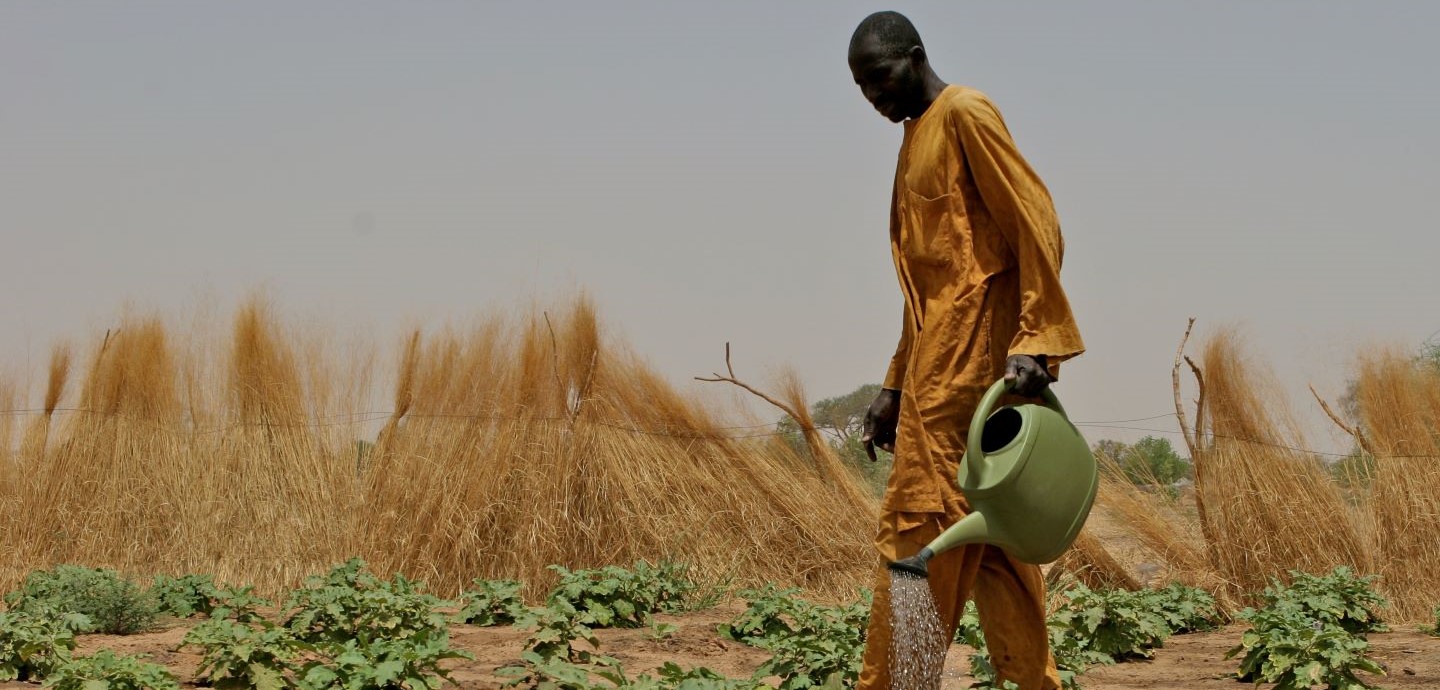Six reasons to focus on small-scale producers at COP26
IFAD Asset Request Portlet
Asset Publisher
Six reasons to focus on small-scale producers at COP26
Estimated reading time: 4 minutes
Six reasons to focus on small-scale producers at COP26
This November, all eyes are on COP26, the United Nations climate change summit. World leaders have gathered to discuss how best to prevent climate change from worsening, and how to prevent or adapt to the changes that are inevitable.
Even as climate change takes hold, IFAD believes it’s possible to transform rural economies and food systems to make them more resilient, sustainable and inclusive, while also making them more productive.
Yet, in 2017/2018, only 1.7 per cent of all tracked climate finance was directed to the small-scale farmers who bring vibrancy to these rural economies.
That’s why we need to come out of COP26 with a global focus on climate change adaptation – and sufficient climate finance directed to these farmers.
Here are six reasons why we believe that small-scale producers should be at the heart of discussions at COP26.
1. They are the most vulnerable to climate change – and the least able to cope with its impacts.
As the IPCC’s Sixth Assessment Report has unequivocally shown, many of the impacts of climate change are irreversible. It’s also clear that these effects hit the poorest and most vulnerable the hardest.
These are the small-scale farmers, herders, fishers and rural food processors in developing countries, who already lack the resilience and safety nets to protect them against repeated shocks.
2. They are essential parts of the current food systems in developing countries.
Although millions of people in developing countries still go hungry or can’t access adequately nutritious diets, much of the food they can access comes from small-scale producers.
There are about half a billion small-scale farms in the developing world, supporting the livelihoods of almost two billion people. All told, they are responsible for approximately 80 per cent of the food produced in sub-Saharan Africa and parts of Asia.
If these farms don’t receive the help they need to adapt to climate change, these food systems will find themselves in severe danger – and widespread hunger will follow.
3. They will be integral to future food systems that can eradicate hunger and provide nutritious diets to all.
To ensure that everyone in the world receives sufficient quantities of safe and nutritious food, we must double agricultural production by 2050, reduce food waste and make our value chains sustainable and efficient.
Small-scale producers grow and process foods for local markets and for their fellow rural-dwellers, shortening supply chains and reducing wastage. Because they typically produce more diverse foods than large industrial farms do, small-scale producers have great potential to be the foundation of diverse and nutritionally rich diets, especially for the world’s poorest people.
Investing in them to help them engage in sustainable agricultural production and green value chains can help ensure enough food is produced for all, while preventing or reversing environmental degradation.
4. They are the custodians of natural environments and often hold essential knowledge about sustainable production.
Small-scale producers and indigenous peoples are deeply connected to the natural environments in which they live and work. They have a stake in ensuring that biodiversity flourishes, and that water and land are managed sustainably and equitably. They are well placed to conserve and manage natural resources and tackle environmental degradation.
These communities also possess a vast – and undervalued – trove of traditional knowledge about their local environment. With the support and tools to draw on this knowledge, they can benefit from natural resources without exploiting or over-extracting them.
5. They can play a part in mitigating climate change.
One fifth of the world’s farmland is made up of small farms of less than five hectares. Therefore, small-scale farmers and rural producers collectively have an important role to play in mitigating and adapting to climate change, protecting natural resources and restoring degraded environments.
By adopting carefully designed nature-based solutions and agroecological practices, small-scale producers can reduce their own impacts and restore ecosystems. They can contribute to climate change mitigation by sequestering carbon even as they preserve biodiversity, manage scarce resources and improve their livelihoods.
6. Cohesion and economic dynamism in rural communities have widespread societal benefits.
If rural dwellers are unable to earn good livelihoods, many will see no choice but to find work or safety in the cities – or in other countries.
This saps the vitality of rural communities, especially since youth are often the first to leave, taking with them their drive and creativity. It can also disrupt the social cohesion and the local economies of their points of departure and arrival alike.
And when young people are deprived of opportunities, they also become susceptible to radicalization, potentially leading to civil unrest and conflict.
Conversely, when rural economies and societies are thriving, and rural dwellers can rely on good livelihoods and fulfilling work in their places of origin, they have no incentive to leave.
Investing in sustainable rural production – from farming to processing to marketing – creates economic landscapes that give youth the opportunities they so desperately need.
Publication date: 05 November 2021